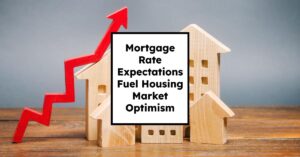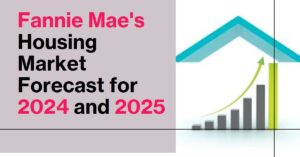Donald Trump's renewed interest in privatizing Fannie Mae and Freddie Mac has reignited a long-standing debate about the future of the U.S. housing market. In short, the plan to free Fannie Mae and Freddie Mac likely means increased risk and potential instability in the housing market, at least in the short term. The impact on homeowners, buyers, and the overall economy could be substantial depending on how privatization is executed. Let's dive deeper into what this could entail.
What is Trump's Plan Regarding the Privatization of Fannie Mae and Freddie Mac?
Why Should You Care About Fannie and Freddie?
Before we get into the nitty-gritty, let's understand why Fannie Mae and Freddie Mac are so important. Think of them as the unsung heroes (or villains, depending on your perspective) of the mortgage world. They don't directly lend money to you and me, but they buy mortgages from lenders, package them into mortgage-backed securities (MBS), and sell them to investors. This process does a few crucial things:
- Keeps money flowing: By buying mortgages, they replenish lenders' funds, allowing them to issue more loans.
- Makes mortgages more affordable: Their guarantee reduces the risk for investors, which translates to lower interest rates for borrowers.
- Standardizes mortgage lending: They set guidelines for the types of mortgages they'll buy, which encourages consistent lending practices across the country.
Essentially, they make sure there's enough money available for people to buy homes and that those homes are reasonably priced. They currently back around 70% of the mortgages in the US.
A Quick History Lesson: The 2008 Crisis and Conservatorship
To really grasp what’s at stake with Trump's plan, we need to rewind to the 2008 financial crisis. Fannie Mae and Freddie Mac were major players in the subprime mortgage market. When the housing bubble burst, they were holding a ton of risky loans that went bad. To prevent a complete collapse of the housing market, the government stepped in and placed them into conservatorship.
This meant the government took control, injected billions of dollars to keep them afloat, and essentially guaranteed their obligations. Since then, they've been operating under government oversight, slowly rebuilding their capital reserves.
What's the Plan Now? Deeper Dive
Now, let's get to Trump's plan. While the details remain a bit hazy, the basic idea is to end government control and return Fannie and Freddie to private ownership. This could involve:
- Releasing them from conservatorship: Letting them operate independently without government oversight.
- Recapitalizing: Allowing them to raise capital from private investors to build up their financial strength.
- Adjusting their business model: Potentially limiting their role in the mortgage market to focus on specific types of loans.
The motivation behind this push seems to be a desire to reduce the government's role in the housing market and promote a more competitive environment. It is aimed at removing the implicit government backing that the entities currently have. However, the mechanics of how this will work are not clear, especially since previous attempts to legislate this have failed.
What Are the Potential Impacts? The Good, the Bad, and the Uncertain
Privatizing Fannie and Freddie is a complex issue with potentially far-reaching consequences. Here's a look at some of the key areas that could be affected:
1. Mortgage Rates:
- The Concern: Without government backing, investors may demand higher returns for investing in mortgage-backed securities (MBS). This could lead to higher mortgage rates for borrowers.
- The Optimistic View: A more efficient, privately-run Fannie and Freddie could potentially innovate and reduce costs, which could offset some of the upward pressure on rates.
- My Take: I think mortgage rates will likely increase, at least initially. It is very difficult for private players to replicate the same guarantees without increasing the costs, and this increased costs will likely be passed on to the homeowners.
2. Mortgage Availability:
- The Concern: A more cautious, privately-owned Fannie and Freddie might tighten lending standards, making it harder for some people to qualify for a mortgage.
- The Optimistic View: Private companies may be more willing to take on innovative lending products that could help more people access homeownership.
- My Take: I think the initial reaction will be conservative, as lenders become more risk-averse.
3. Housing Prices:
- The Concern: Higher mortgage rates and tighter lending standards could cool down the housing market, leading to slower price growth or even price declines.
- The Optimistic View: A more stable and predictable mortgage market could lead to more sustainable home price growth in the long run.
- My Take: While a dramatic crash seems unlikely, I expect a period of price stabilization or modest declines in some markets.
4. Taxpayer Risk:
- The Concern: Without government backing, Fannie and Freddie could potentially fail again, requiring another taxpayer bailout.
- The Optimistic View: Privatization could eliminate the risk of future bailouts, shifting the risk to private investors.
- My Take: This is the biggest potential benefit. If done right, privatization could protect taxpayers from future losses. But it also means the housing market is more exposed to market forces.
5. The Role of Community Banks:
- The Concern: Smaller community banks may find it harder to compete with larger, private institutions, potentially reducing access to credit in some areas.
- The Optimistic View: A more diverse mortgage market could create new opportunities for community banks to specialize in specific types of loans.
- My Take: This is a valid concern. Regulations need to ensure that smaller lenders can still participate in the market.
Here's a quick summary in table format:
| Impact Area | Potential Concern | Potential Benefit |
|---|---|---|
| Mortgage Rates | Higher rates due to increased risk | Lower rates due to efficiency gains |
| Mortgage Availability | Tighter lending standards | More innovative lending products |
| Housing Prices | Slower growth or price declines | More sustainable price growth |
| Taxpayer Risk | Potential for future bailouts | Elimination of bailout risk |
| Community Banks | Reduced access to credit in some areas | New opportunities for specialized lending |
Who Benefits, and Who Loses?
Privatization will likely create winners and losers:
- Winners:
- Private investors: Could profit from investing in a privatized Fannie and Freddie.
- Taxpayers (potentially): Could be shielded from future bailouts.
- Losers (potentially):
- Homebuyers: Could face higher mortgage rates and tighter lending standards.
- Homeowners: Could see slower home price appreciation.
- Smaller lenders: Could struggle to compete with larger institutions.
The Million-Dollar Question: How Will It Be Done?
The biggest uncertainty surrounding Trump's plan is how it will be implemented. There are several key questions that need to be addressed:
- What kind of regulatory framework will be put in place? Strong regulation is needed to prevent excessive risk-taking.
- Will there be any form of government guarantee? A limited government backstop could help stabilize the market during times of crisis.
- How will they be recapitalized? The method of recapitalization could affect the value of existing Fannie and Freddie shares.
The answers to these questions will ultimately determine the success or failure of the plan.
My Personal Thoughts and Concerns
Having followed the housing market for many years, I have mixed feelings about this plan. On the one hand, I agree that reducing the government's role in the housing market is a worthwhile goal. The current system creates moral hazard, where Fannie and Freddie can take on excessive risk knowing that the government will bail them out if things go wrong.
On the other hand, I'm concerned about the potential for unintended consequences. A poorly executed privatization could destabilize the housing market, making it harder for people to achieve the dream of homeownership. The risk of higher mortgage rates and reduced access to credit are real and should not be dismissed lightly. The new entities need to be very well regulated, and given the political climate, I think that the chances of effective regulation are minimal.
Ultimately, I believe that a gradual and well-planned transition to a private system is the best approach. It is important to proceed with caution and carefully consider the potential impacts on all stakeholders.
What Should You Do?
Given the uncertainty surrounding Fannie and Freddie, here's my advice:
- Stay informed: Keep up with the latest news and developments.
- Be prepared: If you're planning to buy a home, be prepared for potentially higher mortgage rates.
- Don't panic: The housing market is resilient, and it will adapt to whatever changes come its way.
Build a Stronger Future with Norada in 2025
As bold economic plans shape the nation, invest in high-quality, ready-to-rent properties for reliable returns.
Whether the focus is on growth or stability, real estate remains a cornerstone of financial security.
Speak with our expert investment counselors (No Obligation):
(800) 611-3060
Read More:
- Emergency Price Relief on Housing: What Does Trump's Order Mean?
- Trump's Inaugural Speech: Bold Plans on Border, Economy, and More
- What Happens to Kamala Harris' Proposal of $25,000 Homebuyer Assistance Now?
- Housing Market Predictions for 2025 if “Trump” Wins Election
- 10 Housing Market Predictions Under Trump for the Next 4 Years
- Will Donald Trump's Victory Reshape the Housing Market in 2025?
- Trump vs Harris: Housing Market Predictions Post-Election





 On November 19, 2009 Freddie Mac recorded an average 30 year mortgage rate at 4.83%, down from 4.91% the previous week. Just over one year ago, the 30 year mortgage rate averaged 6.04%. So long as you have solid credit and a 20% down payment, whether
On November 19, 2009 Freddie Mac recorded an average 30 year mortgage rate at 4.83%, down from 4.91% the previous week. Just over one year ago, the 30 year mortgage rate averaged 6.04%. So long as you have solid credit and a 20% down payment, whether  While both the media and stock investors believe that housing has bottomed, they are unaware of the massive supply of homes that are already in the foreclosure process that will certainly drive home prices down even further when they are sold. We have been projecting a “W” shaped recovery for some time, and we are becoming even more convinced that we are right. The shape of the second leg down is almost completely dependent on the level of government intervention that will take place.
While both the media and stock investors believe that housing has bottomed, they are unaware of the massive supply of homes that are already in the foreclosure process that will certainly drive home prices down even further when they are sold. We have been projecting a “W” shaped recovery for some time, and we are becoming even more convinced that we are right. The shape of the second leg down is almost completely dependent on the level of government intervention that will take place.
